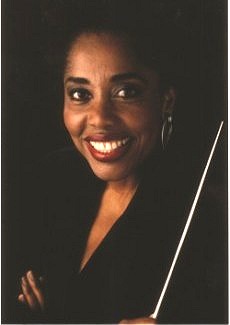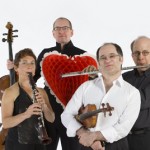 2009 Frederic A. Juilliard/Walter Damrosch Rome Prize winner Lisa Bielawa has returned to her hometown of San Francisco to take part in the 2010 Other Minds festival. Her piece, Kafka Songs, will close the first night of the festival on Thursday, March 4th. Violinist, vocalist and rock star Carla Kihlstedt, for whom Kafka Songs was written, will perform. OM 15 takes place at the Jewish Community Center of San Francisco, and tickets can be purchased online here.
2009 Frederic A. Juilliard/Walter Damrosch Rome Prize winner Lisa Bielawa has returned to her hometown of San Francisco to take part in the 2010 Other Minds festival. Her piece, Kafka Songs, will close the first night of the festival on Thursday, March 4th. Violinist, vocalist and rock star Carla Kihlstedt, for whom Kafka Songs was written, will perform. OM 15 takes place at the Jewish Community Center of San Francisco, and tickets can be purchased online here.
Despite her whirlwind schedule leading up to the festival, Lisa was able to take time out to answer a few of my questions.
S21: During your student years, did you ever feel pressure to become exclusively a composer, or exclusively a performer?
LB: Since I received musical training at home as a child (my parents are both musicians as well), in college I decided to major in French literature, not music. I didn’t think of myself as either a performer or a composer really until later, when I was trying to figure out how to make a living.
S21: What parameters have you set up for yourself for allotting time and energy to composing, versus performing?
LB: Decisions about which projects to do, whether composing or performing, have to be made very carefully. Above all, I want every musical experience I have, no matter what form my participation takes, to expand my own awareness, make me grow in some way. It is also wonderful if it can provide a focused inquiry for me around some particular musical issue I am fascinated by or grappling with at the moment in my compositional work. I suppose this is the ultimate test for me: if involvement in some project will result in making me better able to accomplish/address the things I want to accomplish/address in my composing (thereby making my work communicate better and clearer), then I will make the time to do this. Many performing experiences have done this for me, so I do not begrudge the time I invest in them, even though in the short term they may “take me away” from composing.
S21: Having grown up steeped in the San Francisco arts community, did you experience culture shock when you moved to New York in 1990?
LB: I had 4 years at Yale in between, which were really important ones for me. Although I wasn’t majoring in music, I was involved in vocal music and jazz through various student-run groups, and these experiences were an important transition time for me. Many of the musical friends I made at Yale came to New York as well, so the transition was rather smooth, under the circumstances. Of course there was the shock of being an adult and needing to figure out how to earn money and live a real life. These things were much more challenging than any cultural differences.
S21: The Time Out New York review praised your “organic experimentation”. Can the organic aspect of your work be identified, and how does it manifest?
LB: I suppose (I hope!) this writer could have been responding to my practice of making work about and on people. I am not so interested in experimentation as an abstract value, as much as I am interested in how one might use “experimental” or creative, unexpected ways to celebrate and heighten awareness of a particular performance experience, involving specific people in a specific place and time. This means that if I am writing for one unique performer who sings and plays the violin at the same time (that’s Carla), I will experiment with ways to celebrate and heighten the awesome strangeness and wonder of this act, whereas if I am writing for a 70-member volunteer orchestra of community music lovers (as I happen to be doing at the moment, for the Cambridge Symphony Orchestra), I will experiment with ways to heighten their experience of music-making in a community with intense musical passion and a broad range of abilities.
 Composer, arts administrator, educator, and now, festival curator,
Composer, arts administrator, educator, and now, festival curator,  Columbia’s own Southern Exposure New Music Series and xMUSE (University of South Carolina’s Experimental Music Studio, directed by Reginald Bain) combine forces once again to present an evening of genre-bending music and technology. The
Columbia’s own Southern Exposure New Music Series and xMUSE (University of South Carolina’s Experimental Music Studio, directed by Reginald Bain) combine forces once again to present an evening of genre-bending music and technology. The  The concert also features Lois V. Vierk‘s Go Guitars for five electric guitars, influenced by traditional Japanese court music, and Reginald Bain‘s Jovian Images, inspired by NASA photographs of planets and performed by renowned saxophone virtuoso Susan Fancher. Admission is free (
The concert also features Lois V. Vierk‘s Go Guitars for five electric guitars, influenced by traditional Japanese court music, and Reginald Bain‘s Jovian Images, inspired by NASA photographs of planets and performed by renowned saxophone virtuoso Susan Fancher. Admission is free ( Sure, the recession has caused for cutbacks in the arts. But composers are a resilient bunch. This week, New York City will be the site for the first
Sure, the recession has caused for cutbacks in the arts. But composers are a resilient bunch. This week, New York City will be the site for the first 

 Those of you who are familiar with the contemporary arts scene in Seattle know that there are two organizations which have been dedicated to presenting new and interesting works from around the world for over 20-years:
Those of you who are familiar with the contemporary arts scene in Seattle know that there are two organizations which have been dedicated to presenting new and interesting works from around the world for over 20-years:  The American Music Center’s
The American Music Center’s